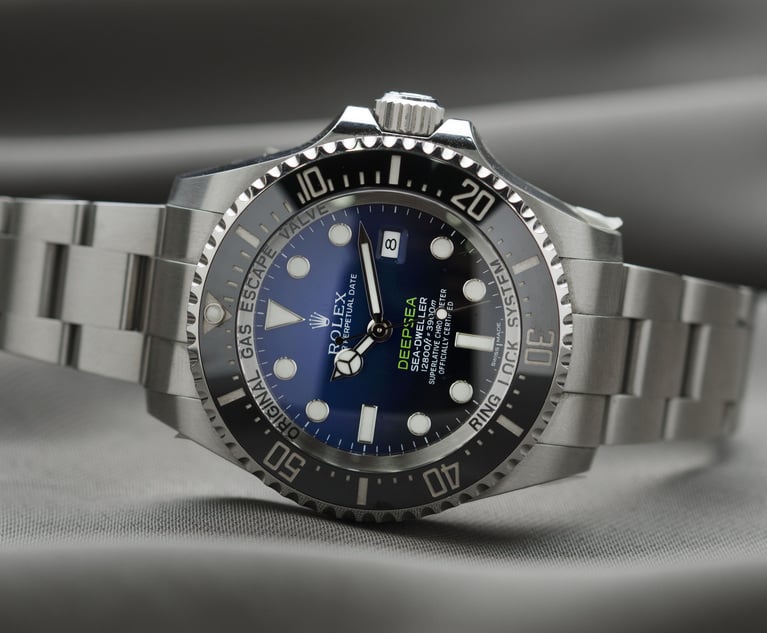The italian job - Telecom Italia's GC on one of Europe's most eventful in-house roles
Life at Telecom Italia (TI) is rarely dull. Italy's largest telecoms company is currently embroiled in two major scandals, each containing enough intrigue and drama to fulfil the war story quota of TI general counsel and company secretary Antonino Cusimano for a good few years. Not that he can share such tales publicly, of course. The first involves illegal gathering of personal information. Between 2001 and 2006 the phones of more than 5,000 Italians - among them journalists, politicians and other prominent individuals - were allegedly tapped. Since the scandal was uncovered four years ago there have been a host of arrests, including that of TI's former head of security, Giuliano Tavaroli.
July 29, 2010 at 05:35 AM
6 minute read
Amid co-ordinating Telecom Italia's response to two major scandals, the company's general counsel has found time to overhaul his legal team. Alex Aldridge reports
Life at Telecom Italia (TI) is rarely dull. Italy's largest telecoms company is currently embroiled in two major scandals, each containing enough intrigue and drama to fulfil the war story quota of TI general counsel and company secretary Antonino Cusimano for a good few years. Not that he can share such tales publicly, of course.
The first involves illegal gathering of personal information. Between 2001 and 2006 files were allegedly created on more than 5,000 individuals – among them Italian journalists, politicians and other prominent individuals. Since the scandal was uncovered four years ago there have been a host of arrests, including that of TI's former head of security, Giuliano Tavaroli.
The fallout continues, with Cusimano – who inherited the matter when he joined the company in 2008 – co-ordinating the internal response as the case makes its way through the Italian courts. "The prosecution has had to deal with several hundred thousand pages of evidence. This gives you some idea of the scale of the thing," he explains.
Scandal two is an alleged multimillion-euro tax fraud and money laundering scam linked to the Calabrian Mafia at TI's subsidiary, Sparkle. Cusimano, 45, admits to having been kept awake on occasion by the affair, which is the subject of a continuing investigation by the Italian authorities. He adds: "Essentially it's an alleged tax violation case that took place years ago, concerning, among other things, one of our units. It's been a significant undertaking and one that has given me and the rest of the team a few sleepless nights."
Meanwhile, the restructuring of TI's 200-strong legal team has provided a different kind of drama. The key elements of the shake-up, which has seen departmental costs reduced by in excess of 40%, have been a heavy round of job cuts and a review of TI's panel of external legal advisers. The 40 redundancies (20% of the legal team) were, according to Cusimano, "tough to make, but necessary", with people "eased into retirement where possible". As the company looks to make further savings to reduce its debt of in excess of €30bn (£25.3bn), Cusimano doesn't rule out the possibility of "further adjustments".
The panel review, which took place last year and was underscored by a commitment to keep more work in-house, has also led to some major changes, with regular adviser numbers cut from around 100 to a current total of 30. Those retained include leading Italian independent Bonelli Erede Pappalardo, the Italian offices of Paul Hastings and Cleary Gottlieb Steen & Hamilton, and Hogan Lovells and Clifford Chance for UK work. "There wasn't really a panel, just a list of firms. That approach has now been changed," says Cusimano.
The new arrangement sees the telecom giant's regular firms kept on their toes with a vendor rating system for which the senior TI lawyers responsible for instructions get together three times a year to discuss the level of service they receive. The plan is to produce a final assessment each year based on criteria including problem-solving ability, quality of advice and provision of continual legal education support. Firms that fall short of expectations will be removed from the panel. "Nobody is safe. That's why I continue to welcome firms we don't have existing relationships with when they come to see us," says Cusimano.
This mixture of common sense and more rigorous process is reminiscent of the way matters are handled at General Electric (GE), where Cusimano held the role of legal director of global services for the company's oil and gas business for three years prior to joining TI. "Working as a lawyer at GE is the equivalent to a PhD; it's the ultimate training school," he says. "The company is procedures-oriented, with a focus on compliance and metrics. Those are all enablers for efficiency and success."
Structures and metrics were also important at PPG, the Pittsburgh-based chemicals company where Cusimano spent 11 years – five as European general counsel. There he reported to the company's recently retired general counsel Jim Diggs, the person who he says has had most influence on him professionally. One piece of advice issued by Diggs stands out in particular: horses for courses. "That has stayed with me," explains the Sicilian-born Cusimano in the fluent English he honed during his private practice days in London with Hill Dickinson. "As a manager it's important to recognise that even those with the best talent are not suitable for all jobs."
Alongside providing him with the language skills to decipher English idioms, the City gave Cusimano deal exposure – his role as point man to Hill Dickinson's Italian client base a nice vantage point to the ins and outs of cross-border transactions. This experience has come in handy lately, most notably in TI's $1.34bn (£879m) sale of German broadband unit Hansenet to Spanish telecoms rival Telefonica in November – part of the company's plan to dispose of non-core assets.
And it is likely to be of continuing use as TI pushes ahead with the second strand of its strategy: bulking up in emerging markets like Brazil, where it already has 40 lawyers and its telecoms business, TIM Brasil, is the country's third-largest mobile operator. Cusimano is hoping that a busy couple of years dealing with the past will give way to a similarly active spell focusing on the future.
Career timeline
1989 Starts career with Italian arbitration boutique Rubino-Sammartano & Associati
1991 Moves to Hill Dickinson's London office as an associate
1994 Joins PPG Industries as an in-house lawyer
2000 Appointed general counsel of PPG Industries Europe
2005 Moves to General Electric (GE) Oil & Gas as senior counsel of global services and transactions
2008 Brought in by Telecom Italia as general counsel and company secretary
This content has been archived. It is available through our partners, LexisNexis® and Bloomberg Law.
To view this content, please continue to their sites.
Not a Lexis Subscriber?
Subscribe Now
Not a Bloomberg Law Subscriber?
Subscribe Now
NOT FOR REPRINT
© 2024 ALM Global, LLC, All Rights Reserved. Request academic re-use from www.copyright.com. All other uses, submit a request to [email protected]. For more information visit Asset & Logo Licensing.
You Might Like
View All
Setting Standards: Vanguard Australia's Sean Hughes on Moving From Government Regulator to Corporate General Counsel
6 minute read
Netflix Offices Raided by Authorities in Paris and Amsterdam
Trending Stories
Who Got The Work
Michael G. Bongiorno, Andrew Scott Dulberg and Elizabeth E. Driscoll from Wilmer Cutler Pickering Hale and Dorr have stepped in to represent Symbotic Inc., an A.I.-enabled technology platform that focuses on increasing supply chain efficiency, and other defendants in a pending shareholder derivative lawsuit. The case, filed Oct. 2 in Massachusetts District Court by the Brown Law Firm on behalf of Stephen Austen, accuses certain officers and directors of misleading investors in regard to Symbotic's potential for margin growth by failing to disclose that the company was not equipped to timely deploy its systems or manage expenses through project delays. The case, assigned to U.S. District Judge Nathaniel M. Gorton, is 1:24-cv-12522, Austen v. Cohen et al.
Who Got The Work
Edmund Polubinski and Marie Killmond of Davis Polk & Wardwell have entered appearances for data platform software development company MongoDB and other defendants in a pending shareholder derivative lawsuit. The action, filed Oct. 7 in New York Southern District Court by the Brown Law Firm, accuses the company's directors and/or officers of falsely expressing confidence in the company’s restructuring of its sales incentive plan and downplaying the severity of decreases in its upfront commitments. The case is 1:24-cv-07594, Roy v. Ittycheria et al.
Who Got The Work
Amy O. Bruchs and Kurt F. Ellison of Michael Best & Friedrich have entered appearances for Epic Systems Corp. in a pending employment discrimination lawsuit. The suit was filed Sept. 7 in Wisconsin Western District Court by Levine Eisberner LLC and Siri & Glimstad on behalf of a project manager who claims that he was wrongfully terminated after applying for a religious exemption to the defendant's COVID-19 vaccine mandate. The case, assigned to U.S. Magistrate Judge Anita Marie Boor, is 3:24-cv-00630, Secker, Nathan v. Epic Systems Corporation.
Who Got The Work
David X. Sullivan, Thomas J. Finn and Gregory A. Hall from McCarter & English have entered appearances for Sunrun Installation Services in a pending civil rights lawsuit. The complaint was filed Sept. 4 in Connecticut District Court by attorney Robert M. Berke on behalf of former employee George Edward Steins, who was arrested and charged with employing an unregistered home improvement salesperson. The complaint alleges that had Sunrun informed the Connecticut Department of Consumer Protection that the plaintiff's employment had ended in 2017 and that he no longer held Sunrun's home improvement contractor license, he would not have been hit with charges, which were dismissed in May 2024. The case, assigned to U.S. District Judge Jeffrey A. Meyer, is 3:24-cv-01423, Steins v. Sunrun, Inc. et al.
Who Got The Work
Greenberg Traurig shareholder Joshua L. Raskin has entered an appearance for boohoo.com UK Ltd. in a pending patent infringement lawsuit. The suit, filed Sept. 3 in Texas Eastern District Court by Rozier Hardt McDonough on behalf of Alto Dynamics, asserts five patents related to an online shopping platform. The case, assigned to U.S. District Judge Rodney Gilstrap, is 2:24-cv-00719, Alto Dynamics, LLC v. boohoo.com UK Limited.
Featured Firms
Law Offices of Gary Martin Hays & Associates, P.C.
(470) 294-1674
Law Offices of Mark E. Salomone
(857) 444-6468
Smith & Hassler
(713) 739-1250








